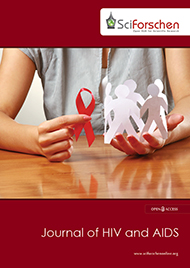
School of Medicine and Health Sciences
-
University of North Dakota
Grand Forks, ND, USA
E-mail: nabab.khan@UND.edu
Education
| 2015 | PhD of Virology | International Centre for Genetic Engineering and Biotechnology (ICGEB)/Jawaharlal Nehru University (JNU), Delhi, India |
| 2006 | Msc in Biotechnology | Himachal Pradesh University, HP, India |
| 2003 | Bsc in Chemistry (H) | Aligarh Muslim University, UP, India |
Biography
Dr. Khan has completed PhD at ICGEB/JNU (2015) on the HIV-1 virus; he accepted a Post-Doctoral Fellow position in the School of Medicine and Health Sciences at the University of North Dakota USA where he remained working for almost five years (2015). The focus of his research continues to be on the HIV-1-Associated Neurocognitive Disorders (HAND) by emphasizing the roles of HIV-1 proteins in the development of HAND. Currently, his research works are related to the following projects: (1) Tat endolysosome escape. This project’s primary goal is to test the hypothesis that HIV-1 Tat escapes endolysosomes through protein pores of the membrane sector (V0) of v-ATPase, and that this escape is facilitated by calcium release from endolysosome two-pore channels (TPCs), and that all of this contributes to Tat-induced neurotoxicity. (2) Identifying the protective actions of Trehalose and Ketone bodies on the HIV-1 Tat-induced neurotoxicity.
He has extensive experience in handle the BSL3 laboratory. During his PhD period, he trained and taught many students to handle the BSL3 laboratory. Since Dec 2015, as a Post-Doc, He trained five undergraduate and 4 PhD students and supported their research work. He is an academic editor at three different international peer-review journals. He has published 15 manuscripts and presented his research work at six different places worldwide. His publications have been cited over 175 times as Google scholar citations. Also, he got the first prize for a poster presentation on my research work at the SNIP meeting, Philadelphia-USA.
Research Interest
-
HIV-1-Associated Neurocognitive Disorders (HAND)
Scientific activities
Professional Experience
| 07-09 2007 | Project Assistant at Centre for DNA Fingerprinting and Diagnostics (CDFD), Hyderabad-India |
| 09-2007-2009 | Junior Research fellow at ICGEB/JNU, Delhi-India |
| 2009-04/2015 | Senior Research Fellow at ICGEB/JNU, Delhi-India |
| April-November, 2015-Dec 2015 | Research Associate I (RAI) at Virology Group, ICGEB-New Delhi, India Post-doctoral fellow, School of Medicine and Health Sciences, University of North Dakota-USA |
Honors & Awards
- Qualified All India Combined Entrance Test for Masters in Biotechnology (AICET) conducted by Jawaharlal Nehru University (JNU), New Delhi-India.
- ICMR-SRF fellowship (Indian Council for Medical Research) has been awarded on Identification and Characterization of Anti-HIV-1 drugs from Plants (2011 to 2014).
- First Prize-winner on poster presentation at SNIP meeting, Philadelphia-USA, 2017. Apolipoprotein E isoform- dependently affects Tat-mediated HIV-1 LTR transactivation.
- Travel award for SNIP meeting, Philadelphia-USA, 2017.
Publications
- Khan N, Chen X, Geiger JD (2020) Role of Divalent Cations in HIV-1 Replication and Pathogenicity. Viruses12: E471.
- Khan N, Padhi S, Patel P, Priyakumar UD, Jameel S (2020) The HIV-1 Vpu transmembrane domain topology and formation of a hydrophobic interface with BST-2 are critical for Vpu-mediated BT-2 downregulation. BioRxiv.
- Sharma V, Makhdoomi M, Singh L, Kumar P, Khan N, et al. (2020) Trehalose limits opportunistic mycobacterial survival during HIV co-infection by reversing HIV-mediated autophagy block. Autophagy: 1-20.
- Khan N, Halcrow PW, Lakpa KL, Afghah Z, Miller NM, et al. (2020) Two-pore channels regulate Tat endolysosome escape and Tat-mediated HIV-1 LTR transactivation. FASEB J 34: 4147-4162.
- Velasquez S, Prevedel L, Valdebenito S, Gorska AM, Golovko M, et al. (2019) Circulating levels of ATP is a biomarker of HIV cognitive impairment. EBioMedicine 51: 102503.
- Khan N, Haughey NJ, Nath A, Geiger JD (2019) Involvement of organelles and inter-organellar signaling in the pathogenesis of HIV-1 associated neurocognitive disorder and Alzheimer’s disease. Brain Res 1722: 146389.
- Khan N, Lakpa KL, Halcrow PW, Afghah Z, Miller NM, et al. (2019) BK channels regulate extracellular Tat-mediated HIV-1 LTR transactivation. Scientific Reports 9: 12285.
- Khan N, Datta G, Geiger JD, Chen X (2018) Apolipoprotein E isoform-dependently affects Tat-mediated HIV-1 LTR transactivation. J Neuroinflammation 15(1): 91.
- Halcrow PW, Khan N, Datta G, Ohm JE, Chen X, et al. (2019) Importance of measuring endolysosome, cytosolic and extracellular pH in understanding the pathogenesis of and possible treatments for glioblastoma multiforme. Cancer Reports 2.
- Gupta D, Rani M, Khan N, Jameel S (2014) HIV-1 infected peripheral blood mononuclear cells modulate the fibrogenic activity of hepatic stellate cells through secreted TGF-β and JNK signaling. PLoS ONE 9.
- Patel P, Khan N, Rani M, Gupta D, Jameel S (2014) The expression of HIV-1 Vpu in monocytes causes increased secretion of TGF-β that activates profibrogenic genes in hepatic stellate cells. PLoS ONE 9.
- Padhi S, Khan N, Jameel S, Priyakumar UD (2013) Molecular dynamics simulations reveal the HIV-1 Vpu transmembrane protein to form stable pentamers. PLoS ONE 8.
- Minakshi R, Padhan K, Rani M, Khan N, Ahmad F, et al. (2009) The SARS Coronavirus 3a protein causes endoplasmic reticulum stress and induces ligand-independent downregulation of the type 1 interferon receptor. PLoS ONE 4.
- Mehto S, Antony CF, Khan N, Arya R, Selvakumar A, et al. (2015) Mycobacterium tuberculosis and human immunodeficiency virus type 1 cooperatively modulate macrophage apoptosis via Toll Like Receptor 2 and calcium homeostasis. PLoS ONE 10.

